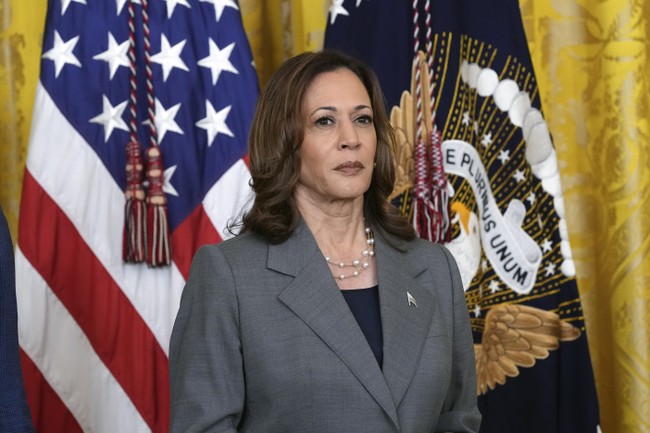
On Monday, The New York Times released a “fact-check” that left people wondering if the “paper of record” had any idea how evidence works. Focusing on whether Kamala Harris ever worked at McDonald’s, a claim her campaign has repeatedly made, the “fact-check” concluded that Donald Trump’s questioning of the story “also appears to be false.”
SEE: The New York Times ‘Fact-Checks’ Kamala Harris and McDonald’s, and It’s Absolutely Incredible
As I wrote in my response, there was no justification for that proclamation. After investigating the matter, the only “evidence” the two journalists who wrote the piece could come up with was a statement from the Harris campaign and a “friend” who claimed to have heard about the job from the vice president’s now-deceased mother.
Now, you might be asking yourself what incredible evidence the two Times “journalists” who wrote this piece came across to show that “Trump’s latest allegation also appears to be false.” Did they find tax records? Did they figure out what location she worked at? Did they speak to a former co-worker or manager? Did they find a mention of the job in her early resumes or writings? Nope. The entire claim that Trump is lying comes down to “the Harris campaign and a friend told us.”
That is not a “fact-check.” When you only have the word of the person making the questionable claim and a supposed “friend,” then you do not have the evidence necessary to come to a solid conclusion. Certainly, you do not have the evidence needed to then accuse someone else of lying about the issue. In this case, Donald Trump.
But it’s that “friend” that is now drawing fresh scrutiny. According to a new report, the Times failed to disclose key information about that person that would have greatly diminished their credibility.
A New York Times report on Sunday that equated skepticism about Vice President Kamala Harris’s claim to have worked at McDonald’s with birtherism was based in large part on a source—a friend of Harris’s—who said that Harris’s late mother told her about the job.
“Donald Trump has claimed without evidence that Ms. Harris never worked at the fast-food chain,” the paper said. “Her campaign and a friend say she did.”
Meet Wanda Kagan, Harris’s high school classmate and longtime girlfriend, whom the Times described as “a close friend of Ms. Harris’s when they attended high school together in Montreal.” Kagan, per the Times, “said that Ms. Harris’s mother, who died in 2009, had told Ms. Kagan about the summer job years ago.”
What the Times did not tell its readers is that Kagan is a full-throated Harris supporter who has appeared alongside the vice president at several campaign events. She also served as a surrogate for her old friend on television during the Democratic National Convention.
Nowhere in the Times’ “fact-check” did they mention that Wanda Kagan was not a detached bystander vouching for something she saw first-hand, though that was the impression they sought to give. Instead, Kagan is a surrogate for the Harris campaign and is very close to the vice president. In other words, there is zero reason to believe her story, which just so happens to be unverifiable because she claims a dead woman told her.
This is journalistic malpractice. If someone is tied that closely to a presidential campaign, they should never be used as a source in a fact-check about the candidate in question. Not only did the Times do that, but they hid those key details from their readers to make it seem as if Kagan was more disconnected than she was. This is a person who has appeared on stage with Harris at rallies.
It seems as if every day, something else happens to prove the press can’t be trusted to do even the most basic things. “Fact-checks” are supposed to stick to what can be proven. When they become vehicles for laundering one campaign’s narrative without real evidence, they are nothing more than activism.
